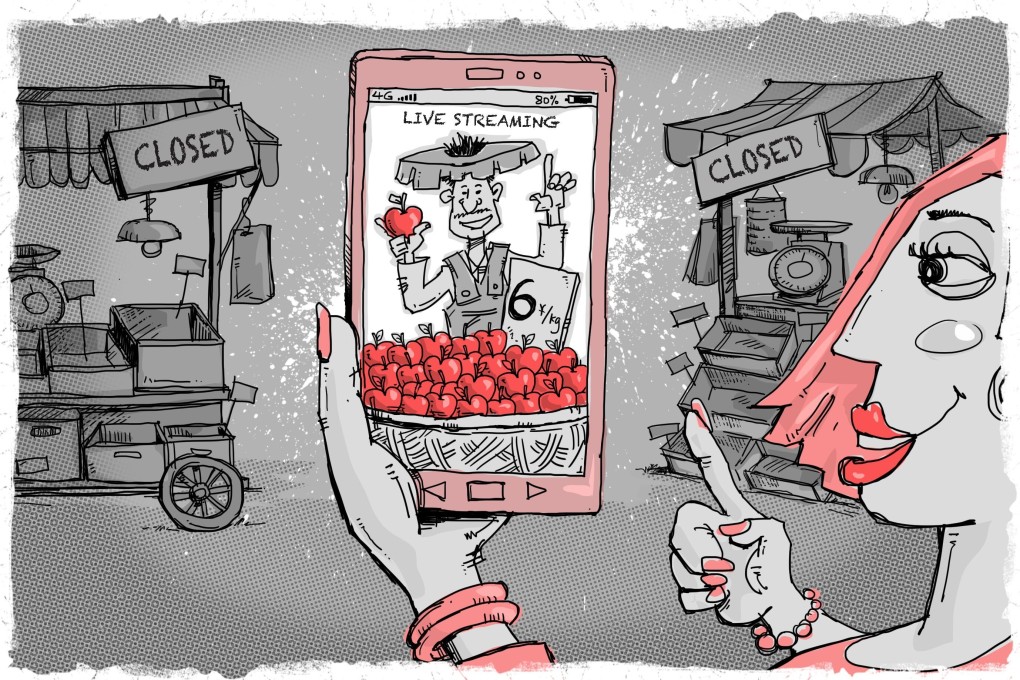Coronavirus: Live-streaming sales prove a lifeline for China’s small retailers as pandemic disrupts business models and consumer behaviour
- From houses, cars and clothes to food and film tickets, Chinese consumers are suddenly buying vast quantities of goods via live-streaming platforms
- After most of China went into lockdown, many small retailers turned to live-streaming in a desperate bid to stay afloat

Zhang Jiacheng, a farmer in one of China’s poorest counties, is wandering around his orchard on a desolate mountainside cutting flowers from the apple trees.
As he wields his secateurs he looks towards a tripod-mounted camera trained on what he’s doing as he explains to a live online audience what makes his apples so tasty.
“You can get to know the growing process of our apple trees here. They taste so good because the height of our orchard is more than 1,000 metres [0.6 miles],” says the 59-year-old during one of his regular broadcasts on Taobao Live.
Addressing an audience that fluctuates between dozens and a few thousand, he is trying to sell his farm produce, which includes apples, potatoes and black fungus. Any of his viewers wishing to make a purchase just have to click an icon on screen to bring up a list of products.
Zhang is part of a growing army of small Chinese retailers who have recently turned to live-streaming to boost sales at a time consumer habits are changing faster than ever.

He learned his new skills last summer from a tech team at Taobao Live as part of a campaign by Alibaba Group to help relieve poverty in the countryside by boosting live-streaming sales (Alibaba owns the South China Morning Post).